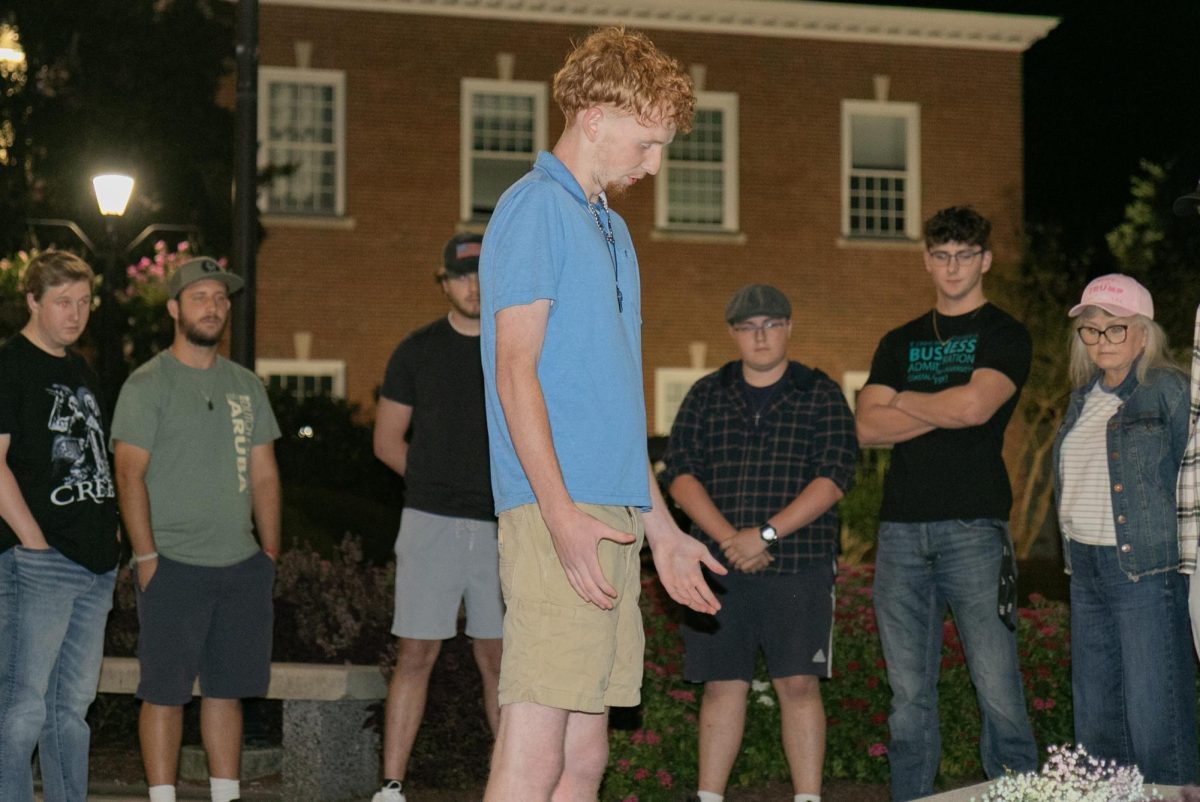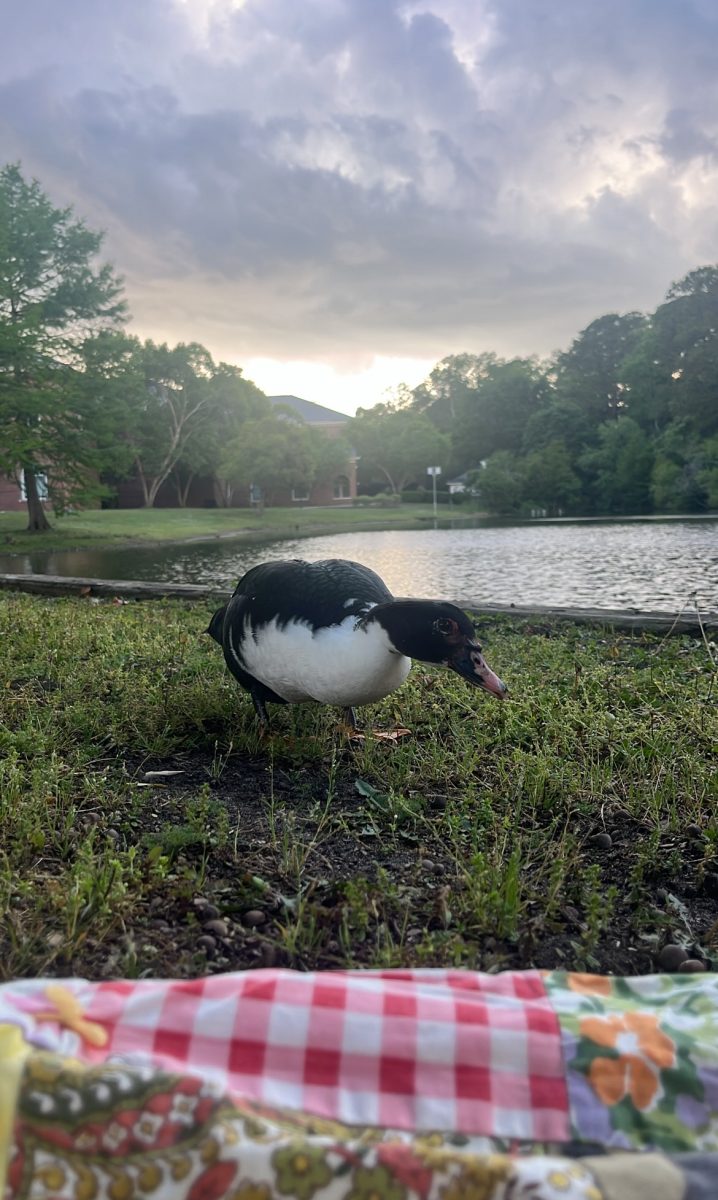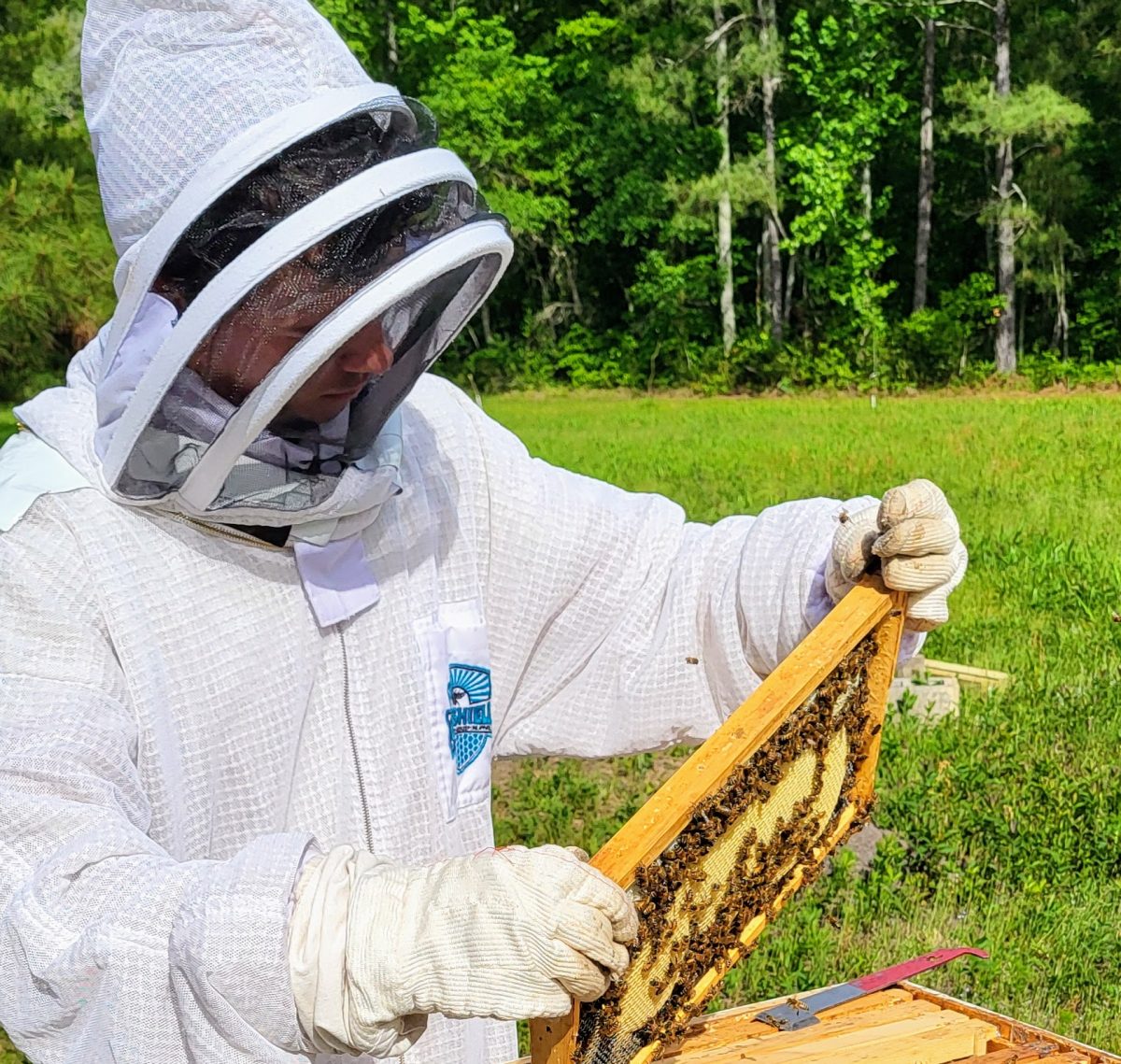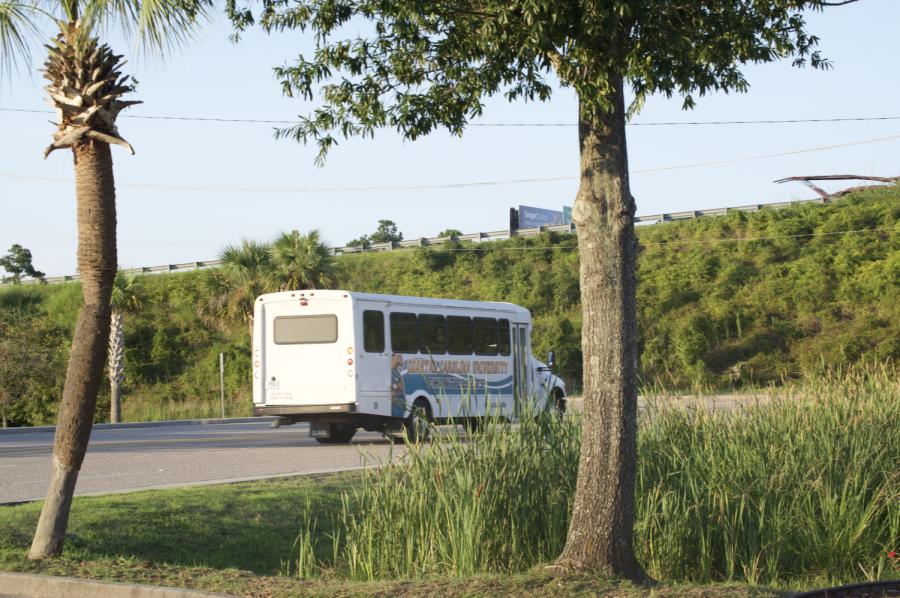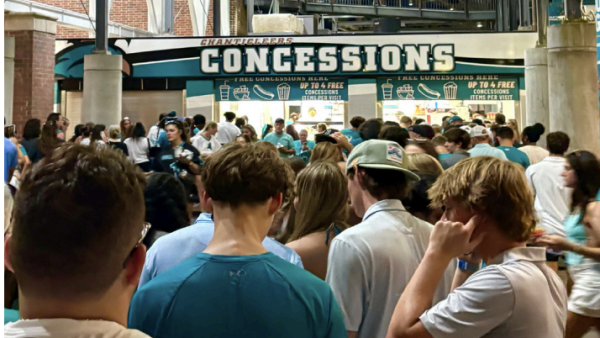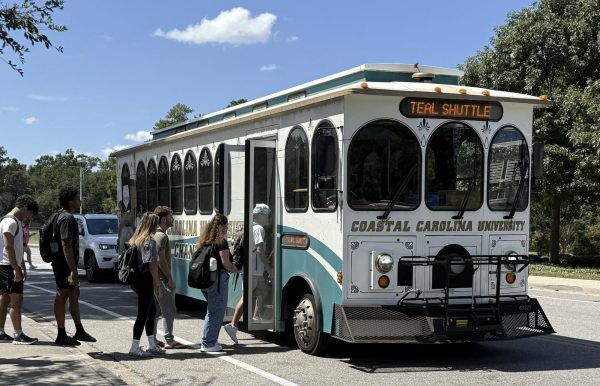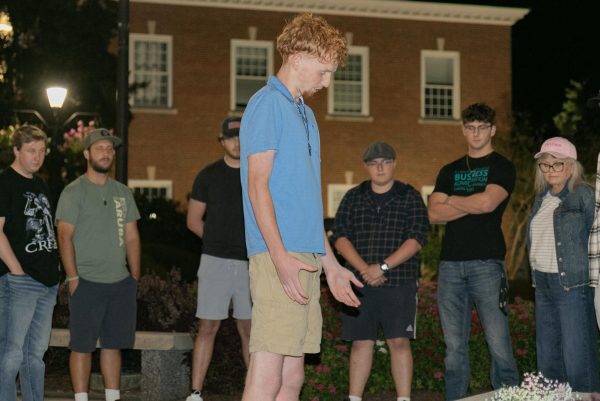Housing hiccups as enrollment increases: Addressing the overflow and lack of beds
The Four Points by Sheraton hotel is being used to house the overflow of students.
For the first time ever, students are living in hotels to accommodate another record- breaking freshman class.
Lashae Hammett, a sophomore, transferred to CCU from Mainlands Technical College. She said Coastal was her dream school, but after being placed in the Four Points hotel, she said this isn’t the college experience she was imagining.
“I’m just trying to get it over with now,” Hammett said.
The University admitted 2,693 freshmen this semester, but there are only 2,530 available beds in the on-campus dorms. This includes Eaglin Hall, Ingle Hall, Chanticleer Hall, DeCenzo Hall, Singleton-Young Hall, Tradition Hall, and The Woods.
According to University policy STUD 336, freshmen and sophomore students are required to live in university-operated and owned housing. Senior Director of University Housing Kathy Daley said 75 students were offered the choice to opt out of the requirement to give their bed up for a first-year or transfer student.
“We basically put out a plea to the upperclassmen individuals,” Daley said. “There were a portion of people who took us up on it.”
An email sent by University Housing on July 19 described this relocation as “an opportunity for a limited number of University Place residents,” which Hammett said mislead her.
Upper classmen who chose to continue living in university housing were placed in alternative living options within a 45-minute drive to campus. Those traditional housing options are: The Gardens on Quail Creek Village Avenue across from Brooks Stadium, and University Place (UP), which is located behind Circle K off of S.C. 544.
The university has contracted with two non-traditional housing options. These new housing options include The Pier, an apartment complex across from campus on S.C. 544, and the Four Points by Sheraton, a Myrtle Beach hotel.
The hotel is located eight miles away from campus right between the Intracoastal Waterway and Fantasy Harbour Boulevard, next to The Boathouse. A designated shuttle runs daily to and from the hotel every 20 to 25 minutes from 7 a.m. to 4 p.m. and every 40 to 45 minutes from 4 p.m. to 11 p.m.
Daley said the Four Points location was chosen solely because the hotel had a larger quantity of beds than any other hotel closer to campus. The first building of The Pier was also chosen for upper classmen because of the available rooms and because it is two miles away from campus.
Coastal has 80 beds reserved at The Pier. Daley said there are 98 beds at Four Points set aside for students, but not all are in use. Students who stay at the hotel are living among other hotel guests.
Daley said the amenities at the hotel and The Pier are not the same as living in normal university housing, but they do offer a pool, gym and study area in each location. The Pier has the added benefit of being within walking distance of campus, and the hotel has weekly housekeeping service.
Some other benefits for students living at Four Points are a daily continental breakfast, 40% off food from the pantry (similar to POD markets) and The Brine Bar, the restaurant located inside the hotel.
Hammett said she was supposed to have a roommate, but before they could meet, she was relocated. She said she plans to get her own apartment in the spring, therefore she has not attempted to decorate the hotel room. She said she is not sure if students are allowed to decorate their spaces.
“It’s kind of lonely, like it defeated the purpose,” Hammett said.
She prefers to continue to ride the shuttle to save money on gas for her personal car, regardless of the wait time. Hammett said she found out as late as August where she was assigned to live.
University President Michael Benson said university administrators could tell the enrollment trends were rising as they kept an eye on the reports every Friday. He said administrators expected a “summer melt” when students are accepted to Coastal but do not pay a deposit, which usually makes the acceptance numbers go down. However, the melt did not occur this year.
“This is a good problem to have because it suggests that the university is growing and that we’re a known commodity,” Benson said.
Daley said the high enrollment is great for the university and also great for students as they gain more resources and opportunities that come with a bigger university.
Benson said he attempted to incentivize sophomores to live off campus to make room for freshmen students. The freshmen were prioritized because Benson said the first-year experience is important for them to have. He said he cannot predict a change in the policy which requires freshmen and sophomores to live on campus.
Benson said he feels bad for students who live in the hotel because they are so far away, and he hopes they do not feel completely isolated.
“I try and put myself in the position of our students,” Benson said. “As a father of a current college student, I know what it’s like to feel a little unsettled as a parent and a student.”
To ensure the students are safe, there are resident advisers living at the hotel. Benson said the university has been working with the Horry County and Conway police departments to do checkups at Four Points and drive around the premises to let students know they’re available.
According to Daley, a security officer is sent each night to Four Points. Because of its proximity to campus, public safety officers ride over to The Pier and do rounds.
Many parents have reached out to Benson about their concerns regarding the safety of their children due to the distance between the off-campus housing and CCU. Benson said he lived in “rough” residence halls while attending graduate school in England. He said he understands parents’ concerns, and he is doing his best to provide the best experience for their children.
“You can’t keep everybody happy all the time. But we try our best to,” Benson said.
In the future, Benson said there is a possibility of renovating The Woods, which were the first freshmen dorms opened in 1987. He said he is in the process of doing the master plan of the campus, but the wetlands pose many challenges to any additions. The university grounds are owned by the Coastal Educational Foundation.
Benson also said he wants the option of a pedestrian overpass across S.C. 544 because he worries about students who walk to school. He said he hoped everyone would be patient as the university searches for new off and on-campus housing options.
“Some of that short term discomfort results in long term satisfaction for everybody,” Benson said.




